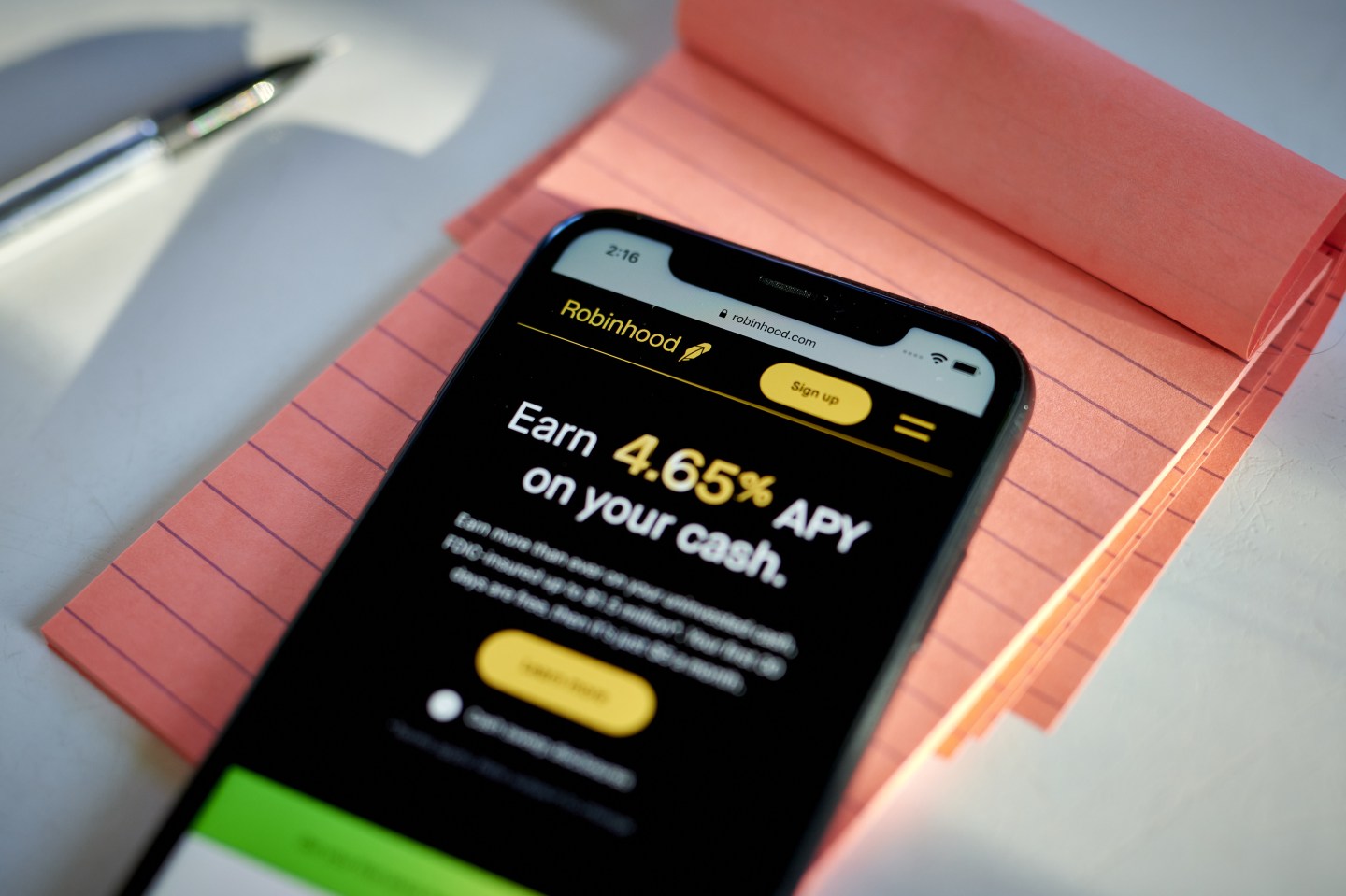I’ve written about a lot of public companies during my time as a tech and finance reporter, and count Robinhood as one of the most interesting of the bunch. This is partly because the company is good at product innovation, but mostly because of its compelling narrative: Robinhood believes it can transcend its roots as a platform for twentysomethings to make tiny YOLO stock bets into something more resembling mighty full-service brokerages like Fidelity and Charles Schwab.
At the same time, though, Robinhood has shown a habit for stepping on rakes. These include the time it had to issue billions of dollars worth of stock-diluting warrants to escape from a collateral catastrophe, and its many run-ins with regulators over its gonzo marketing and other fast-growth tricks. There was also the period when something like a quarter of Robinhood’s revenue came from slinging the novelty cryptocurrency Doge. Such episodes, along with its flailing share price, often made it seem that Robinhood was more fit to be a bolt-on acquisition for a big bank than a serious brand for the long term.
This has not been the case in recent months, however, as Robinhood has avoided dumb mistakes while showing that maybe it has a long-term plan after all. This was reflected in the Q4 earnings it released on Tuesday, which marked a return to profitability and the promise of significant growth in the coming years. HOOD shares were up around 20% on Wednesday as investors liked the uptick in crypto and equity transactions and a surge in interest-related revenue.
That money from interest—which comes mostly from customer balances and margin lending—is not quite a sugar high, nor is it a long-term path to growth. That’s because interest rates can rise, of course, but they can also fall, and will likely do so before long, cutting into Robinhood’s earnings in the process. You can check out the specifics in these company slides, which are unusually revealing for an earnings report.
The most interesting question to ask about the latest earnings, though, is whether the company’s narrative—that it will grow to be a Charles Schwab for the next generation—still looks achievable now that nearly three years have elapsed since Robinhood first went public. The answer is a cautious yes. Robinhood now has around $1.7 billion in retirement assets (which came about in part from an aggressive incentive program) while the average size of customer balances is growing. This fits with CEO Vlad Tenev’s longtime theory that its core customer base, who mostly arrived as impoverished YOLO types, are gaining wealth as they get older and will start using Robinhood in the same way their parents did Charles Schwab (a disrupter of its own when it came on the scene in the 1970s).
Robinhood also has some intangible qualities that offer the makings of long-term success. Those include the ongoing presence of Tenev, who, as is the case with other founders, has ensured his company continues to innovate. Meanwhile, for those of you who think this is all too rosy and want a reality check, here’s one: Robinhood’s total assets under management have grown by only $5 billion since 2021 and total just $103 billion. Compare that to Fidelity and Schwab, which respectively control around $11 trillion and $7 trillion. Robinhood still has a very long way to the big leagues. Nonetheless, this week’s earnings were a reminder this company still has the capacity to surprise.
Jeff John Roberts
jeff.roberts@fortune.com
@jeffjohnroberts
DECENTRALIZED NEWS
In a pair of TV appearances, SEC Chair Gary Gensler reiterated his hostility to Bitcoin and declined to offer any hints on whether the agency will approve Ethereum ETFs. (Fortune)
Coinbase reports earnings at close of market on Thursday, and analysts expect strong results owing to interest income and an uptick in trading. (CoinDesk)
A judge approved bankrupt Genesis’s request to sell $1.3 billion worth of GBTC despite DCG’s objection it could be unfair to creditors and that a hasty sale could depress prices. (Bloomberg)
Crypto attorney and former Marine John Deaton announced plans to run as the GOP candidate in Massachusetts against powerful liberal Sen. Elizabeth Warren. (Politico)
Crypto prices rallied on Wednesday as Bitcoin topped $52,000 and the overall crypto market reached $2 trillion for the first time in years. (Bloomberg)
MEME O’ THE MOMENT
Every woman’s Valentine’s Day dream, an intro to Web3 course:

This is the web version of Fortune Crypto, a daily newsletter on the coins, companies, and people shaping the world of crypto. Sign up for free.













